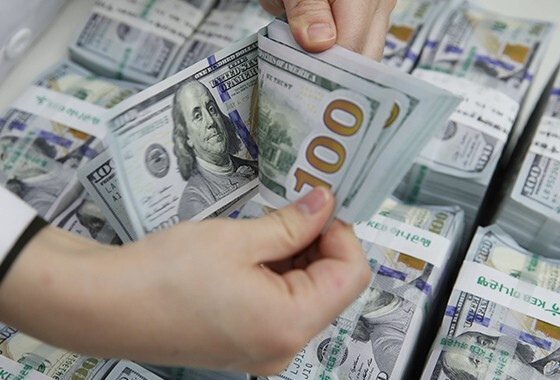
The won-dollar exchange rate rose to the highest level in two years, exceeding the 1,410 won level during the day. As oil prices and exchange rates rose simultaneously, import prices rose last month by the largest amount in six months. The strong dollar phenomenon is accelerating due to the influence of the ‘Trump Trade’ and is expected to exert a burden on domestic consumer prices over time.
On the 13th, the weekly trading closing price of the won-dollar exchange rate in the Seoul foreign exchange market (as of 3:30 p.m.) recorded 1,406.6 won, up 3.1 won from the previous day. Based on the closing price of weekly trading, it is the highest since November 4, 2022 (1,419.2 won).
The exchange rate started at 1,410.0 won, up 6.5 won from the previous day, and then rose to 1,410.6 won during the day. The ‘Trump Trade’ that has been appearing throughout the financial market since the election of US President Donald Trump, along with the continued net selling by foreigners in the domestic stock market, also served as a factor in the rise in the exchange rate. The dollar index, which represents the value of the dollar against the currencies of six major countries, rose 0.35% from the previous day.
The rise in exchange rates is expected to immediately raise import prices and act as a burden on the domestic economy with a lag of several months. Looking at the export and import price index statistics announced by the Bank of Korea on this day, the import price index as of October (provisional value in won, 2020 level 100) recorded 137.61, up 2.2% from September (134.67). This is the largest increase in six months since last April (3.8%). The import price index fell for two consecutive months in August (-3.5%) and September (-2.6%), but then turned upward in three months.
Raw materials rose 4.1% compared to the previous month, mainly mining products, and intermediate goods rose 1.6% compared to the previous month, with increases in coal and petroleum products (4.1%) and primary metal products (2.9%). Capital goods and consumer goods rose 0.5% and 1.1%, respectively.
Foreign exchange experts believe that the exchange rate is likely to remain in the 1,400 won range for the time being as there are no obvious factors to resolve the strong dollar before President-elect Trump's inauguration in January next year. Team Leader Lee said, “Compared to last month, oil prices have fallen, but the exchange rate has risen further, and global economic uncertainty has increased, making it difficult to predict the direction.” “My width may vary,” he said.
[Copyright (c) Global Economic Times. All Rights Reserved.]




























